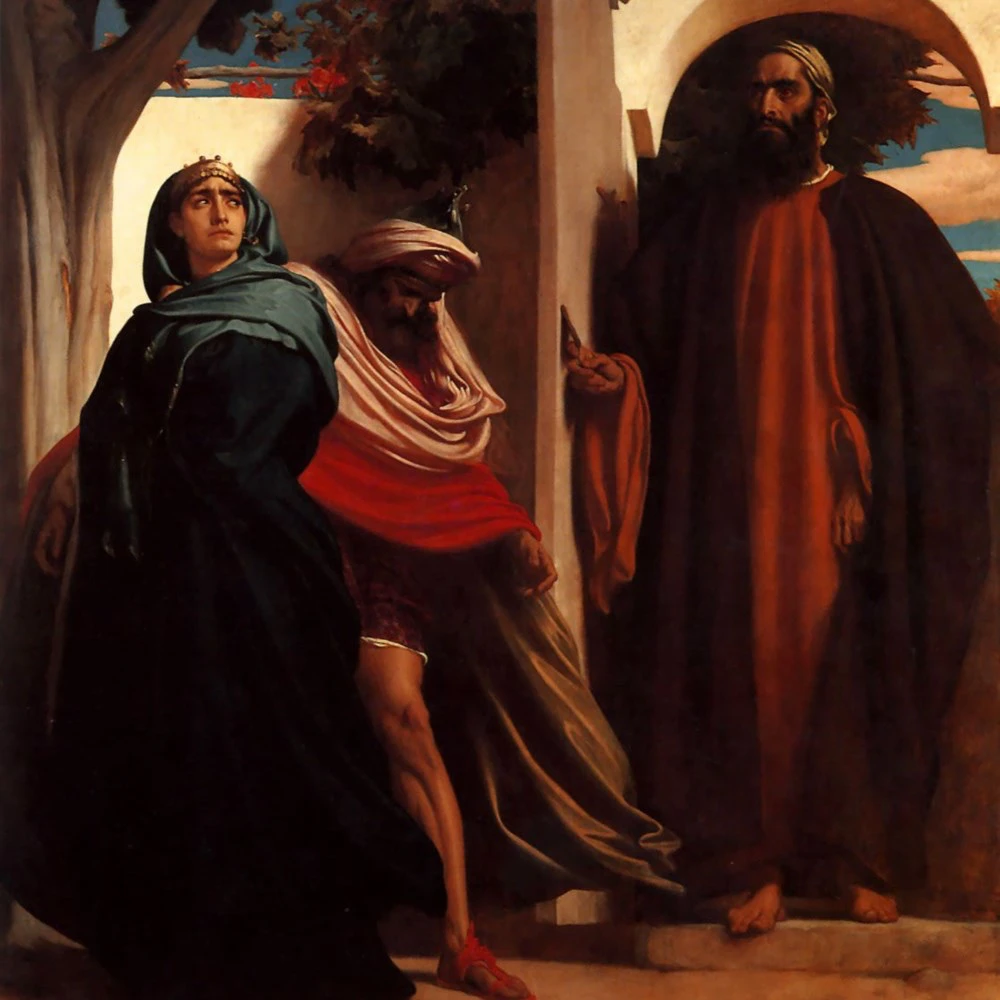Ancient Israel was a kingdom known for its glorious history and powerful rulers. One of the most controversial royal couples in this kingdom was King Ahab and Queen Jezebel. Their reign was marked by a series of significant events and actions that shaped the course of the kingdom’s history. Let’s take a closer look at the lives of King Ahab and Queen Jezebel and their impact on ancient Israel.
The Rise to Power: King Ahab’s Rule
King Ahab inherited the throne from his father, King Omri, in the 9th century BCE. He is described as a “king who did more evil in the eyes of the Lord than any of his predecessors” in the Hebrew Bible (1 Kings 16:30). Despite this reputation, Ahab is also credited with establishing trade relations with other kingdoms and promoting economic prosperity in Israel.
One of the most significant events of Ahab’s rule was the construction of a grand palace in Samaria, the capital of Israel. This palace was said to have been adorned with ivory and made of the finest materials, showcasing Ahab’s wealth and power.
Queen Jezebel’s Influence
Queen Jezebel, daughter of the king of Sidon, was married to Ahab as part of a political alliance between Israel and Sidon. She brought with her a new religion, worship of the god Baal, which was met with resistance from the prophet Elijah and other followers of the traditional religion of Israel.
Jezebel’s strong personality and desire for power are well-documented in the Bible. She is famously known for her role in the persecution of prophets of the traditional religion and the murder of Naboth, a man who refused to sell his vineyard to Ahab. This incident sparked the wrath of the prophet Elijah, who predicted the downfall of the royal couple. It is described in 1 Kings 21:1-26.
Jezebel’s influence over Ahab is also believed to have played a role in the shaping of his rule. Some historians argue that she was the driving force behind many of the king’s controversial decisions, including his alliance with the kingdom of Judah and his conflict with the prophet Elijah.
The Battle of Mount Carmel
One of the most well-known events of King Ahab’s reign was the Battle of Mount Carmel, where the prophet Elijah challenged the prophets of Baal to prove the superiority of their gods. After a series of events that demonstrated the power of the traditional religion of Israel, Elijah directed the killing of the prophets of Baal, an act that was seen as a direct threat to the reign of Ahab and Jezebel.
This famous confrontation is described in 1 Kings 18:17-40. It demonstrates Ahab and Jezebel’s involvement in promoting false gods and their opposition to the worship of the true God.
Condemnation and Death
Both Ahab and Jezebel faced condemnation from the prophets of the traditional religion and other leaders of Israel for their actions. The prophet Elijah’s prediction of their downfall eventually came to pass, as Ahab was killed in battle and Jezebel was thrown from a window and devoured by dogs (2 Kings 9:30-370).
Despite their controversial reign, Ahab and Jezebel left a lasting impact on the history of ancient Israel. Their legacy continues to be debated and discussed by historians and religious scholars even today.
A Cautionary Tale
King Ahab and Queen Jezebel were undoubtedly controversial figures of ancient Israel. While Ahab is credited with some significant achievements during his rule, his alliance with Jezebel and the introduction of Baal worship caused turmoil and conflict within the kingdom. Their story is a cautionary tale of the consequences of power and influence when used irresponsibly.
